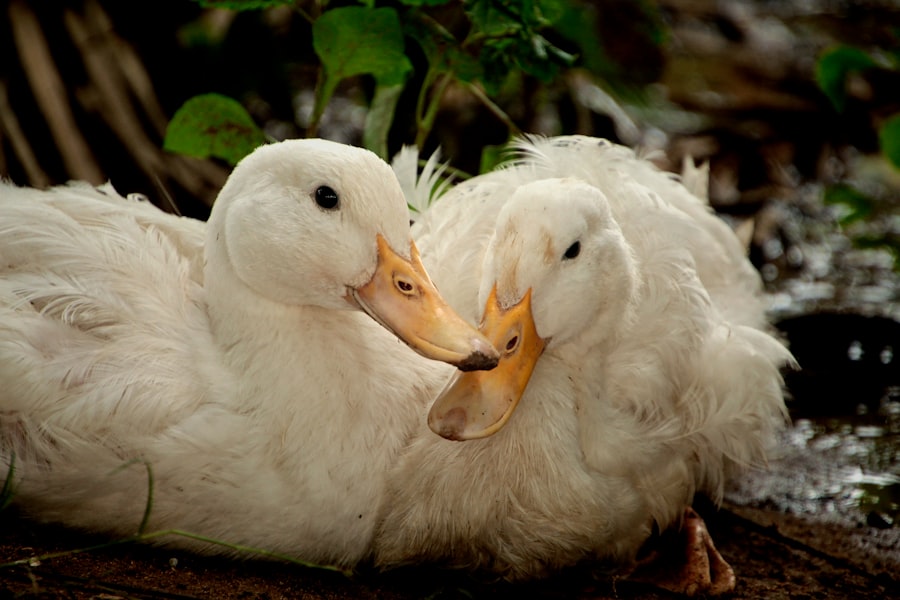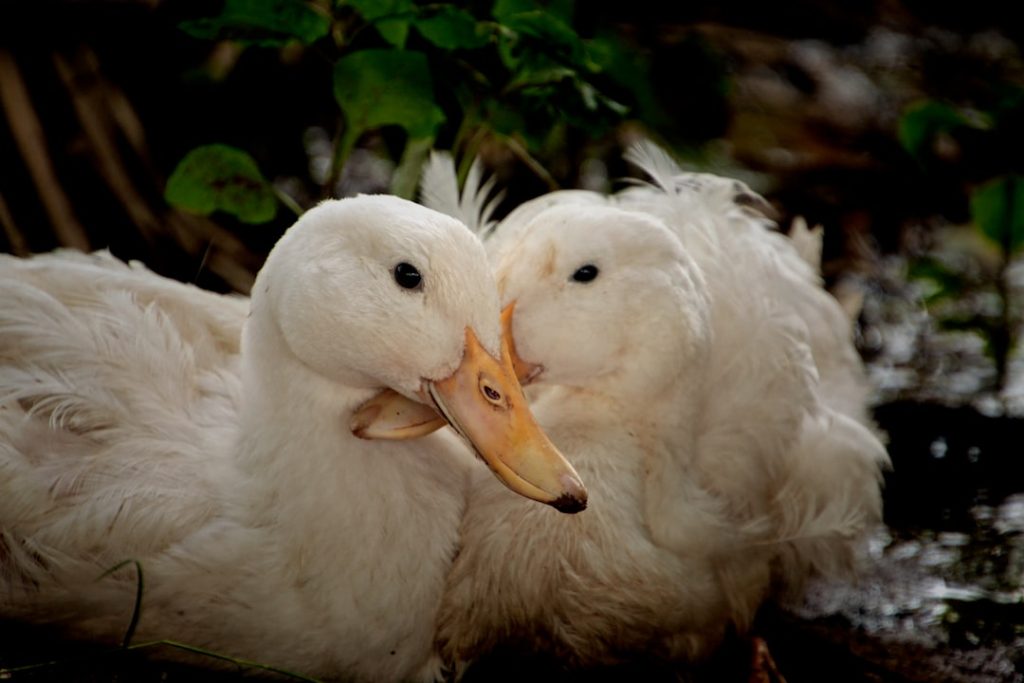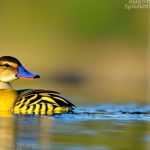Raising ducks in Washington State can be a rewarding and fulfilling experience for both hobbyists and commercial farmers. With its diverse climate and abundant water sources, Washington provides an ideal environment for raising ducks. Whether you are interested in raising ducks for meat, eggs, or simply as pets, there are several factors to consider when embarking on this venture. From choosing the right duck breeds to understanding the potential challenges and benefits, it’s important to be well-informed before starting your duck-raising journey in Washington State.
Table of Contents
- 1 Considerations for Choosing the Best Duck Breeds
- 2 Top Duck Breeds for Washington State
- 3 Benefits of Raising Ducks in Washington State
- 4 Tips for Raising Ducks in Washington State
- 5 Potential Challenges of Raising Ducks in Washington State
- 6 Conclusion and Final Recommendations for Duck Breeds in Washington State
- 7 FAQs
- 7.1 What are the best duck breeds for raising in Washington state?
- 7.2 What characteristics should I consider when choosing a duck breed for raising in Washington state?
- 7.3 Are there any specific considerations for raising ducks in the climate of Washington state?
- 7.4 What are the benefits of raising ducks in Washington state?
- 7.5 What are some common challenges when raising ducks in Washington state?
Key Takeaways
- Raising ducks in Washington State can be a rewarding and sustainable practice for both small-scale and commercial farmers.
- When choosing the best duck breeds for Washington State, it’s important to consider factors such as climate adaptability, egg production, and meat quality.
- The top duck breeds for Washington State include the Pekin, Khaki Campbell, and Runner ducks, which are known for their hardiness and productivity in the region.
- Raising ducks in Washington State offers benefits such as natural pest control, nutrient-rich manure for soil fertility, and a potential source of income through egg and meat production.
- To successfully raise ducks in Washington State, it’s important to provide adequate shelter, access to water, and a balanced diet, while also considering predator protection and disease prevention.
Considerations for Choosing the Best Duck Breeds
When it comes to choosing the best duck breeds for raising in Washington State, there are several factors to consider. First and foremost, it’s important to consider the purpose of raising ducks. If you are looking to raise ducks for meat production, then you may want to consider breeds such as Pekin or Muscovy ducks, which are known for their meat quality and fast growth rates. On the other hand, if you are interested in egg production, then breeds like Khaki Campbell or Indian Runner ducks may be more suitable, as they are prolific layers. Additionally, it’s important to consider the climate and environment of Washington State when choosing duck breeds. Some breeds are more cold-hardy and can withstand the cooler temperatures and wet conditions that are common in Washington. It’s also important to consider the temperament and behavior of different duck breeds, especially if you plan to raise them as pets or for ornamental purposes.
Top Duck Breeds for Washington State
In Washington State, there are several duck breeds that are well-suited for the climate and environment. One popular breed for meat production is the Pekin duck. Pekin ducks are known for their fast growth rates and excellent meat quality, making them a popular choice for commercial duck farming in Washington. Another popular breed for meat production is the Muscovy duck. Muscovy ducks are known for their lean and flavorful meat, as well as their ability to forage for food, making them a sustainable choice for meat production. For egg production, the Khaki Campbell duck is a top choice for Washington State. Khaki Campbells are prolific layers, often producing over 300 eggs per year, making them an excellent choice for those interested in egg production. Another popular egg-laying breed is the Indian Runner duck, known for its upright stance and high egg production. These breeds are well-suited for the climate and environment of Washington State, making them top choices for duck raising in the region.
Benefits of Raising Ducks in Washington State
There are numerous benefits to raising ducks in Washington State. One of the primary benefits is the abundance of water sources in the state, which is essential for raising ducks. Whether you have a small backyard pond or access to larger bodies of water, ducks thrive in wet environments and can make use of natural water sources for swimming and foraging. Additionally, ducks are excellent foragers and can help control pests in gardens and agricultural fields, making them valuable for pest management. Ducks also provide a source of meat and eggs, which can be a sustainable and cost-effective food source for individuals and families. Furthermore, raising ducks can be a rewarding experience, as they are social and entertaining animals that can provide companionship and enjoyment. Overall, the benefits of raising ducks in Washington State include access to water sources, pest management, sustainable food production, and the enjoyment of raising these unique and charming animals.
Tips for Raising Ducks in Washington State
When raising ducks in Washington State, there are several tips to keep in mind to ensure the health and well-being of your flock. First and foremost, it’s important to provide ducks with access to clean water for swimming and drinking. Ducks require water for grooming, digestion, and overall health, so it’s essential to provide them with ample water sources. Additionally, it’s important to provide ducks with shelter and protection from predators, especially in areas where wildlife may pose a threat. Providing a secure coop or shelter at night can help keep ducks safe from predators. It’s also important to provide ducks with a balanced diet that includes a mix of commercial feed, fresh greens, and access to insects and other natural foods. Finally, regular health checks and preventative care can help ensure the overall well-being of your duck flock.
Potential Challenges of Raising Ducks in Washington State

While there are many benefits to raising ducks in Washington State, there are also potential challenges to consider. One challenge is the risk of predators, including raccoons, foxes, and birds of prey, which can pose a threat to ducks, especially if they are free-ranging. It’s important to take measures to protect ducks from predators by providing secure housing and fencing off outdoor areas. Another potential challenge is managing water sources and preventing water contamination. Ducks require access to clean water for swimming and drinking, so it’s important to regularly clean and maintain water sources to prevent the spread of disease. Additionally, managing waste and preventing water pollution from duck droppings can be a challenge, especially in areas with limited space or water resources. It’s important to have a plan for managing waste and preventing environmental impact when raising ducks in Washington State.
Conclusion and Final Recommendations for Duck Breeds in Washington State
In conclusion, raising ducks in Washington State can be a rewarding and enjoyable experience with the right knowledge and preparation. When choosing duck breeds for raising in Washington State, it’s important to consider the purpose of raising ducks, the climate and environment of the region, as well as the temperament and behavior of different duck breeds. Some top recommendations for duck breeds in Washington State include Pekin and Muscovy ducks for meat production, as well as Khaki Campbell and Indian Runner ducks for egg production. These breeds are well-suited for the climate and environment of Washington State and can provide valuable resources such as meat, eggs, pest management, and companionship. With proper care, attention to potential challenges, and adherence to best practices for raising ducks, individuals and farmers in Washington State can enjoy the many benefits of raising these unique and charming animals.
If you’re considering raising ducks in Washington State, you may also be interested in learning about the best chicken coop designs for your poultry. Poultry Wizard offers a helpful article on building an A-frame chicken coop (source), which can provide valuable insights into creating a suitable and comfortable environment for your ducks as well. Understanding the different coop designs and their benefits can contribute to the overall success of raising ducks and other poultry on your farm.
FAQs
What are the best duck breeds for raising in Washington state?
Some of the best duck breeds for raising in Washington state include the Pekin, Khaki Campbell, and Rouen. These breeds are well-suited to the climate and environment of the Pacific Northwest.
What characteristics should I consider when choosing a duck breed for raising in Washington state?
When choosing a duck breed for raising in Washington state, it’s important to consider factors such as cold hardiness, foraging ability, and egg production. Additionally, some breeds may be better suited for small backyard setups, while others may thrive in larger, free-range environments.
Are there any specific considerations for raising ducks in the climate of Washington state?
The climate of Washington state, with its cool, wet winters and mild summers, can impact the choice of duck breeds for raising. It’s important to select breeds that are cold hardy and can withstand the damp conditions. Providing adequate shelter and protection from the elements is also crucial for raising ducks in this climate.
What are the benefits of raising ducks in Washington state?
Raising ducks in Washington state can provide a sustainable source of eggs and meat, as well as natural pest control for gardens and agricultural areas. Ducks are also well-suited to the wet, marshy areas that are common in the region, making them a practical choice for small-scale farming and homesteading.
What are some common challenges when raising ducks in Washington state?
Common challenges when raising ducks in Washington state may include managing the wet and muddy conditions, protecting ducks from predators such as raccoons and coyotes, and providing adequate shelter and ventilation during the cooler months. Additionally, ensuring access to clean water and proper nutrition is important for maintaining the health of ducks in this climate.
Meet Walter, the feathered-friend fanatic of Florida! Nestled in the sunshine state, Walter struts through life with his feathered companions, clucking his way to happiness. With a coop that’s fancier than a five-star hotel, he’s the Don Juan of the chicken world. When he’s not teaching his hens to do the cha-cha, you’ll find him in a heated debate with his prized rooster, Sir Clucks-a-Lot. Walter’s poultry passion is no yolk; he’s the sunny-side-up guy you never knew you needed in your flock of friends!







